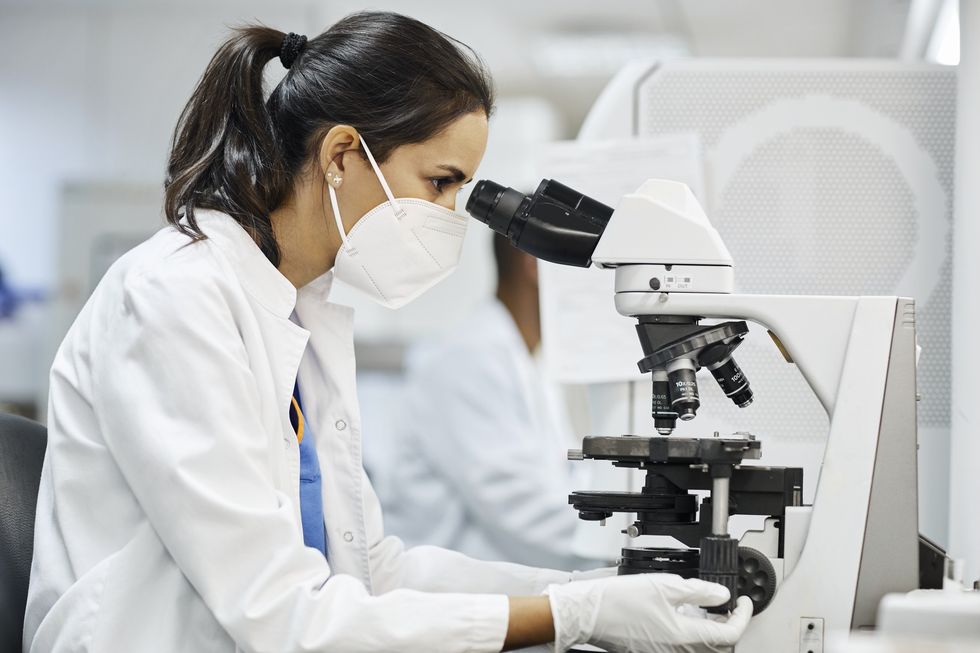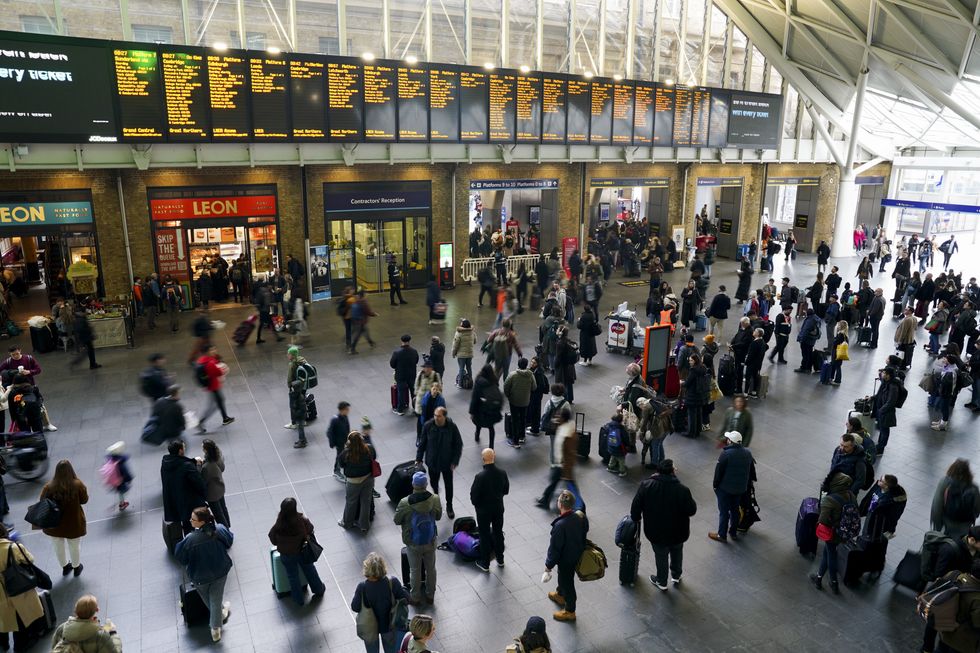US drugmaker scraps £1billion London research centre as UK branded 'uninvestable'

Industry leaders say Britain’s competitiveness crisis could mean fewer medicines and lost investment in key sectors
Don't Miss
Most Read
US drug giant Merck has scrapped plans for a billion-pound research centre in London’s King’s Cross, dealing a major blow to Britain’s life sciences sector. The move will mean 125 job losses among scientists and support staff.



Merck, which operates as MSD in Europe explained that it would shift research back to its existing facilities, mostly in the United States. The company blamed the decision on Britain’s declining position in the global market.
“Simply put, the UK is not internationally competitive,” the firm said.
The decision is a setback for Prime Minister Keir Starmer’s government, which has made life sciences one of its eight priority industries for growth.
The King’s Cross site, which had been due for completion in 2027, was set to focus on research into neuroscience, inflammation and immunology.
Richard Torbett, head of the Association of the British Pharmaceutical Industry, called the move a "real blow" to Britain’s ambitions in life sciences.
He said: "This news must be used as an opportunity to reflect on what factors are driving companies to make such difficult decisions, and what this country can do to ensure it is attracting the high-quality investment we need and not driving it away," Torbett stated.
The industry’s anger has been fuelled by long-running clashes with Health Secretary Wes Streeting over how medicines are priced. Talks broke down last month after drug companies rejected a government plan on NHS pricing that had first been put forward in June.

The industry’s anger has been fuelled by long-running clashes with Health Secretary Wes Streeting over how medicines are priced
| GettyOn Wednesday, global drugmakers warned that Britain is becoming "uninvestable" as anger grows over the NHS drug pricing system.
Eli Lilly, the US obesity drug specialist, said ministers must take "bolder action" to encourage investment, after the company recently paused a potential project in the UK.
French pharmaceutical giant Sanofi also hit out at rising clawback taxes and roadblocks to getting medicines into the NHS, saying "the UK is increasingly being viewed as 'uninvestable' in global boardrooms".
"While other countries are actively investing in innovative medicines for patients, the UK is falling behind," said Rippon Ubhi, Sanofi's UK chief.
Pharmaceutical companies say they are being squeezed by a sharp rise in clawback taxation, which jumped to 22.9 per cent of UK sales this year, far above the expected 15 per cent. The levy forces firms to hand back almost a quarter of their revenues to the NHS.

Pharmaceutical companies say they are being squeezed by a sharp rise in clawback taxation
| GETTYMSD insisted its decision to abandon the King’s Cross research hub was not directly linked to failed pricing talks with the government. But the company warned Britain risks falling further behind its European rivals unless conditions for investment improve.
“Unless a change is made to the operating environment, the undervaluation is corrected, and the investment is put back in the right places, more and more companies will be making these sorts of decisions,” the firm told The Financial Times.
Industry bodies have cautioned that such heavy financial demands could lead to fewer medicines being available in the UK.
MSD’s retreat comes just months after AstraZeneca cancelled a £450million vaccine plant in Speke, near Liverpool, blaming cuts to government subsidies.
The blows to Britain’s pharmaceutical sector come against a backdrop of plunging foreign investment, which has fallen 58 per cent to £795million between 2017 and 2023.

MSD's commitment to the King's Cross development dated back to 2017, when the company announced the research centre as part of new UK headquarters plans
| PAPressure from Washington has also played a part. The Trump administration has pushed drugmakers to invest more in the US, while warning companies they must cut prices to match lower costs in other developed nations. MSD is one of 17 firms facing a September 29 deadline to reduce prices.
MSD's commitment to the King's Cross development dated back to 2017, when the company announced the research centre as part of new UK headquarters plans. Construction commenced in 2023 on the facility that would have employed 200 researchers upon completion.
The affected scientists and support personnel had been conducting early-stage discovery work at temporary locations including the Francis Crick Institute and London Bioscience Innovation Centre. Despite this withdrawal, MSD will maintain approximately 1,600 UK-based employees.
The company's British presence spans nearly a century, and it will continue conducting clinical trials within the country. Remaining staff will focus on drug development programmes, regulatory affairs and business development activities.
The Department for Science, Innovation and Technology acknowledged the concerning nature of the announcement and pledged government support for affected employees.
More From GB News











